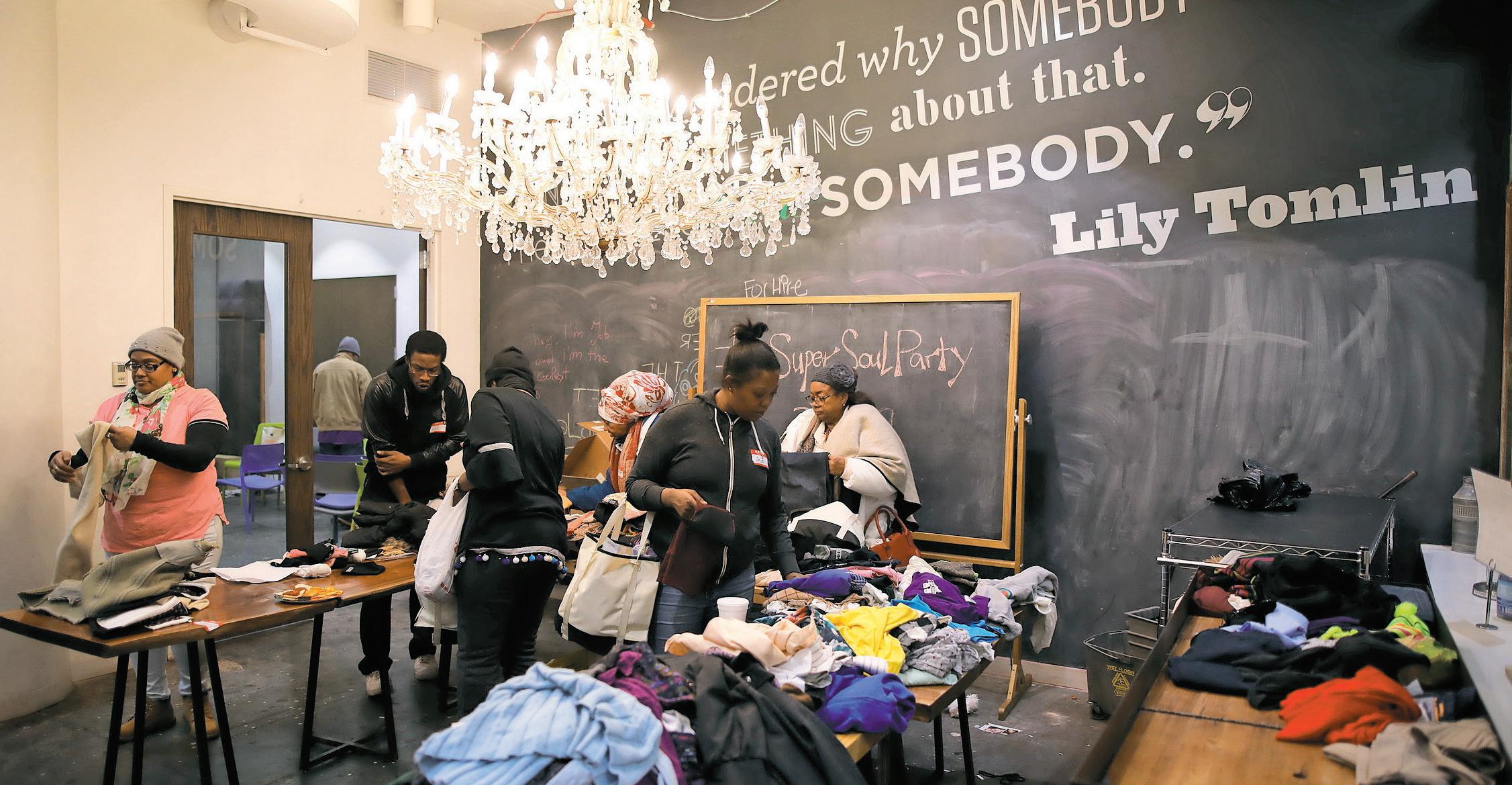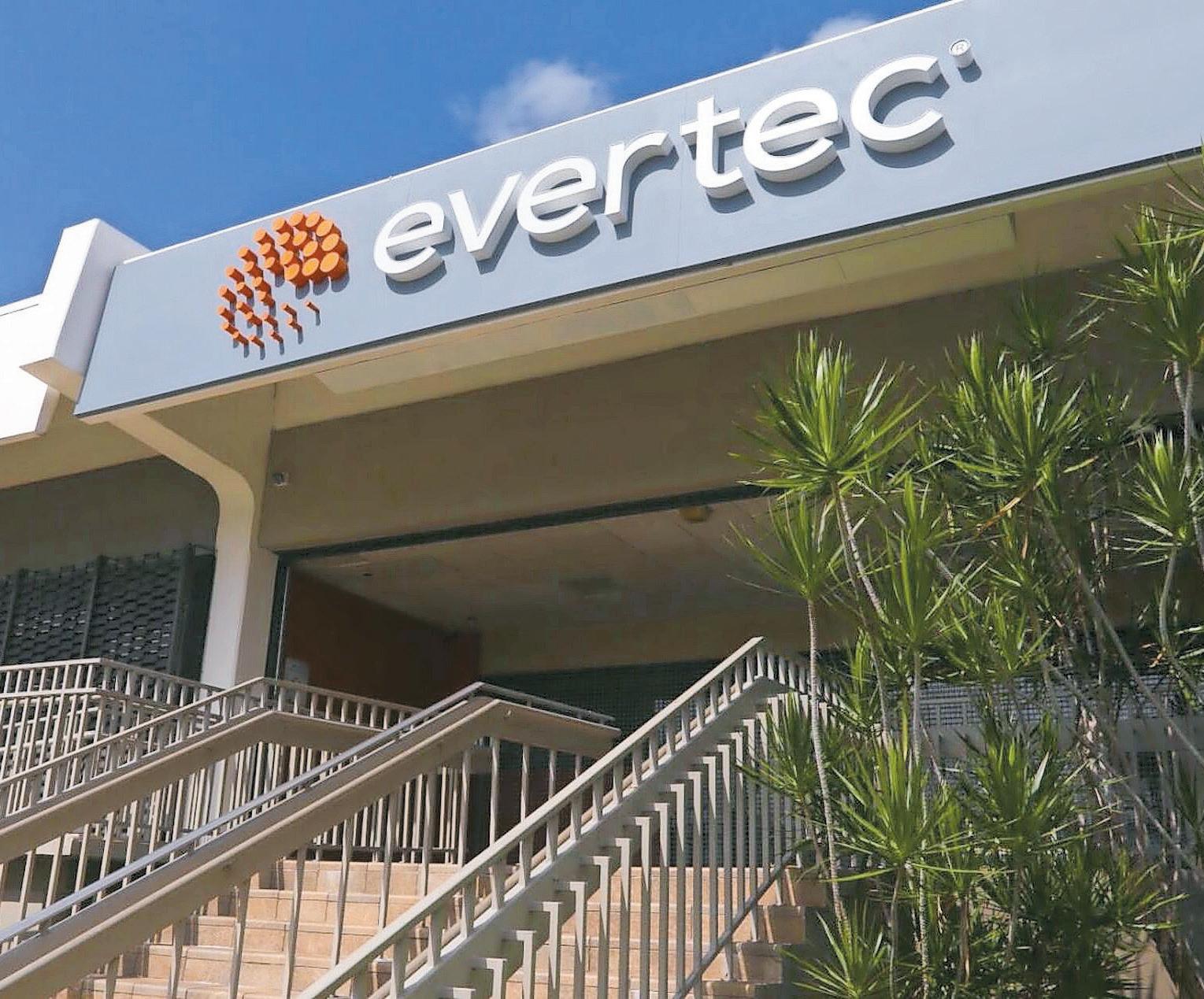
14 minute read
evertec: supporting women through hard times
Supporting Women Through Hard Times
Evertec leads Puerto Rico businesses in gender-equality
Advertisement
Zoe Landi Fontana, The Weekly Journal
For the fourth year in a row, Bloomberg has selected Evertec for distinction according to its gender-equality index. Evertec, a transaction processing company headquartered in Puerto Rico and with operations in 10 countries around the Caribbean and Latin America, has made gender inclusion and equality an essential part of its business culture, creating a resilient and productive workforce.
The Bloomberg Gender-Equality Index (GEI) is (as described on the company’s webpage), “a modified market capitalization-weighted index that aims to track the performance of public companies committed to transparency in gender-data reporting. This reference index measures gender equality across five pillars: female leadership and talent pipeline, equal pay and gender pay parity, inclusive culture, anti-sexual harassment policies, and pro-women brand.”
Women’s Empowerment
Evertec has 32 years of experience, operates in 10 countries, has a diverse range of customers across 26 countries, and over 2500 employees. They were the first Puerto Rican business to participate in the Bloomberg Gender-Equality Index in 2019. Last year, 40% of the company’s women employees were promoted. Paola Perez, Chief Administrative Officer at Evertec, spoke with THE WEEKLY JOURNAL to explain what a diverse workplace looks like, how it benefits both customers and employees, and what their next step is.
“We want to continue to grow our workforce from a woman perspective in the technology area, strengthen the balance between women and men in STEM, promote women in leadership roles; women continue being promoted into leadership roles,” said Perez, “Our customers are diverse –our customers are not all male– so, our products are made for a diverse clientele. It is important to have diversity in [our company] so we can continue to build products that address needs from a customer perspective.”
Evertec also participated in the formation of the Committee for the Prevention, Support, Rescue, and Education of Gender-based Violence (Spanish acronym, PARE), a government program that recommends measure and policies to comply with the state of emergency that was declared in response to a previous increase in cases of gender-based violence in Puerto Rico. Evertec was the only private company to present to the committee the importance of supporting women in the workforce through education –they continue to speak in the forum and support
In fact, ongoing initiatives.
Women’s Mental Health And
Evertec has 32 years of experience, operates in 10 countries, has a diverse range of customers across 26 countries, and over 2,500 employees. The Pandemic Evertec’s employees were sent home to work remotely just two days before the lockdown was announced officially –but it didn’t hamper productivity. Two years in, and Evertec hasn’t laid off a single person due to the pandemic –productivity has actually gone up. This was achieved by a strategy that emphasized employee well-being. As the pandemic progressed and lockdowns lasted longer than hoped for, Evertec began building programs focused on mental health. They
wanted to make sure that their employees didn’t become exhausted from the combined difficulties of working from home while taking care of kids who suddenly weren’t in school for eight hours a day.
Their solution was to provide employees with access to free psychologist services by phone and webinars on managing stress. Their human resources team was prepped and trained for navigating difficult conversations on unpredictable issues with stressed-out coworkers.
The company also participates in the “‘Women’s Inspire Network” - a multicultural community where women can share experiences, access a support system, talk about personal matters, and be inspired by invited speakers.
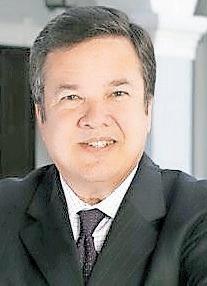
Kenneth Davison McClintock
22nd Secretary of State of Puerto Rico
The Right to Life
“The Right to Life” is a phrase used in the national discourse only in the context of the beginning of life when discussing women’s right to choose or the end of life and euthanasia. However, at least once a person is born, he or she has an enduring right of survival throughout life. In designing several important federal programs since as far back as the nineteenth century, the Federal government has sought to help Americans prolong their lives.
During the Civil War, President Abraham Lincoln saw the need to create a system, now known as the Department of Veteran Affairs, to provide those who fought in America’s wars with medical services that would help them live and receive medical services. Few nations provide those who have served the level of health services as America.
During the Depression, as part of the New Deal, the federal government saw the need to help Americans who could not afford basic health services, and began to provide some assistance.
In the 1960s, President Lyndon Johnson spearheaded efforts to create Medicare for the elderly and the disabled and Medicaid for the medically indigent.
Unfortunately, federally subsidized medical assistance has not been made available to all Americans in a non-discriminatory fashion.
As for veterans, VA facilities are doled out, not strictly on the basis of need, but as a result of patronage or political influence. Partisan politics and seniority in Congress is factored in when it is determined where a new VA hospital or clinic will be located. In that case, a state-like jurisdiction that should have two voting senators and two voting representatives but doesn’t, ends up getting the short end of the stick. Regarding Medicare, that same state-like jurisdiction lacking voting representation in the national legislature as well as in the Electoral College that elects that jurisdiction’s president and vice president, Congress has built in mechanisms to extend Medicare services almost equally, but almost. When I turned 65 last month, I qualified for the Medicare coverage that I’d been paying premiums for 47 years. However, if I didn’t ask particularly for “Part B”, one of the most important benefits, I wouldn’t get it. Anywhere else in the nation I would get that benefit automatically. That discriminatory rule---“opt in” if in Puerto Rico, “opt out” if anywhere else--- was devised for Medicare to be less expensive for the federal government in Puerto Rico, only in Puerto Rico. Concerning Medicaid, the program to provide As Congress struggles to legislate and keep America fiscally stable past Friday, February 18, Puerto Ricans on the mainland as well as their representatives in Congress should make sure in the next few days to include language that will protect the Right to Life in Puerto Rico, providing equal benefits under Medicare and Medicaid to its citizens in our territory.
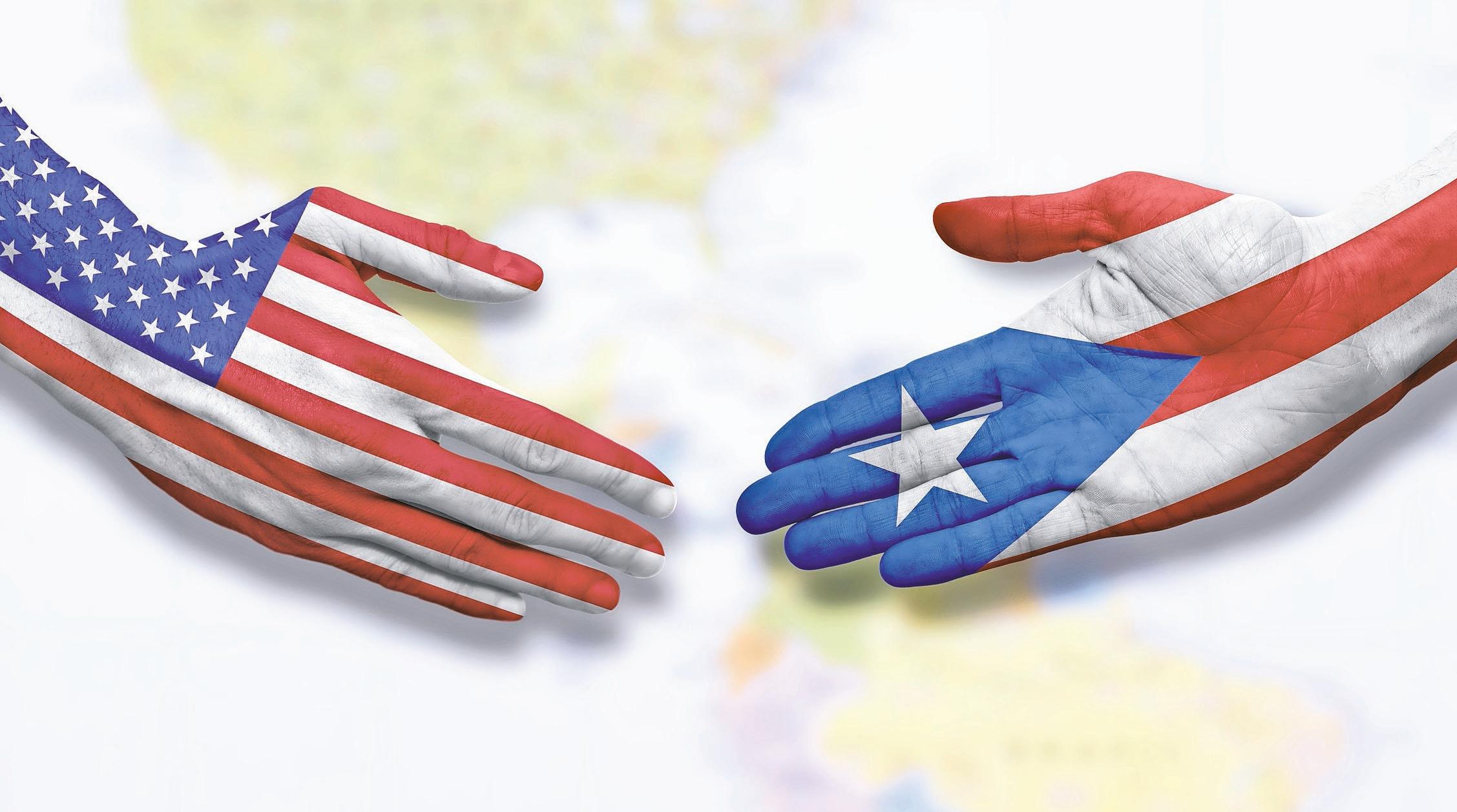
services to all the medically indigent throughout America, the cost in Puerto Rico is statutorily capped at less than $400 million and the federal share is limited to 55% of the total cost, requiring America’s poorest jurisdiction to cover 45% of the cost. In a state with demographics similar to the nation’s most populated territory, the total cost to the federal treasury would be over $4 billion, and the federal share would be 83%. While those benefits are automatic in a state, Puerto Rico’s non-voting representative Jenniffer González, Governor Pedro Pierluisi, and their predecessors for generations, have to devote a lot of time and lobbying efforts to plead with Congress and every President from LBJ on to seek the equality that would guarantee residents of Puerto Rico the “right to life” that is automatic on the mainland. There are many reasons why an absolute majority of Puerto Ricans in Puerto Rico want statehood. According to multiple polls, over 75% of Puerto Ricans in Florida, over 60% of Puerto Ricans in New York and probably an absolute majority of the two thirds of America’s Puerto Ricans who have chosen to live in the states and not in discriminated Puerto Rico, also want statehood for the territory. However, because of the discrimination in extending federally financed health services to the island, it is also a life or death issue, a denial of the Right to Life.
As Congress struggles to legislate and keep America fiscally stable past Friday, February 18, Puerto Ricans on the mainland as well as their representatives in Congress should make sure in the next few days to include language that will protect the Right to Life in Puerto Rico, providing equal benefits under Medicare and Medicaid to its citizens in our territory. That should be our urgent agenda for the next week, seeking the full extension of The Right to Life in Puerto Rico through equality and statehood.
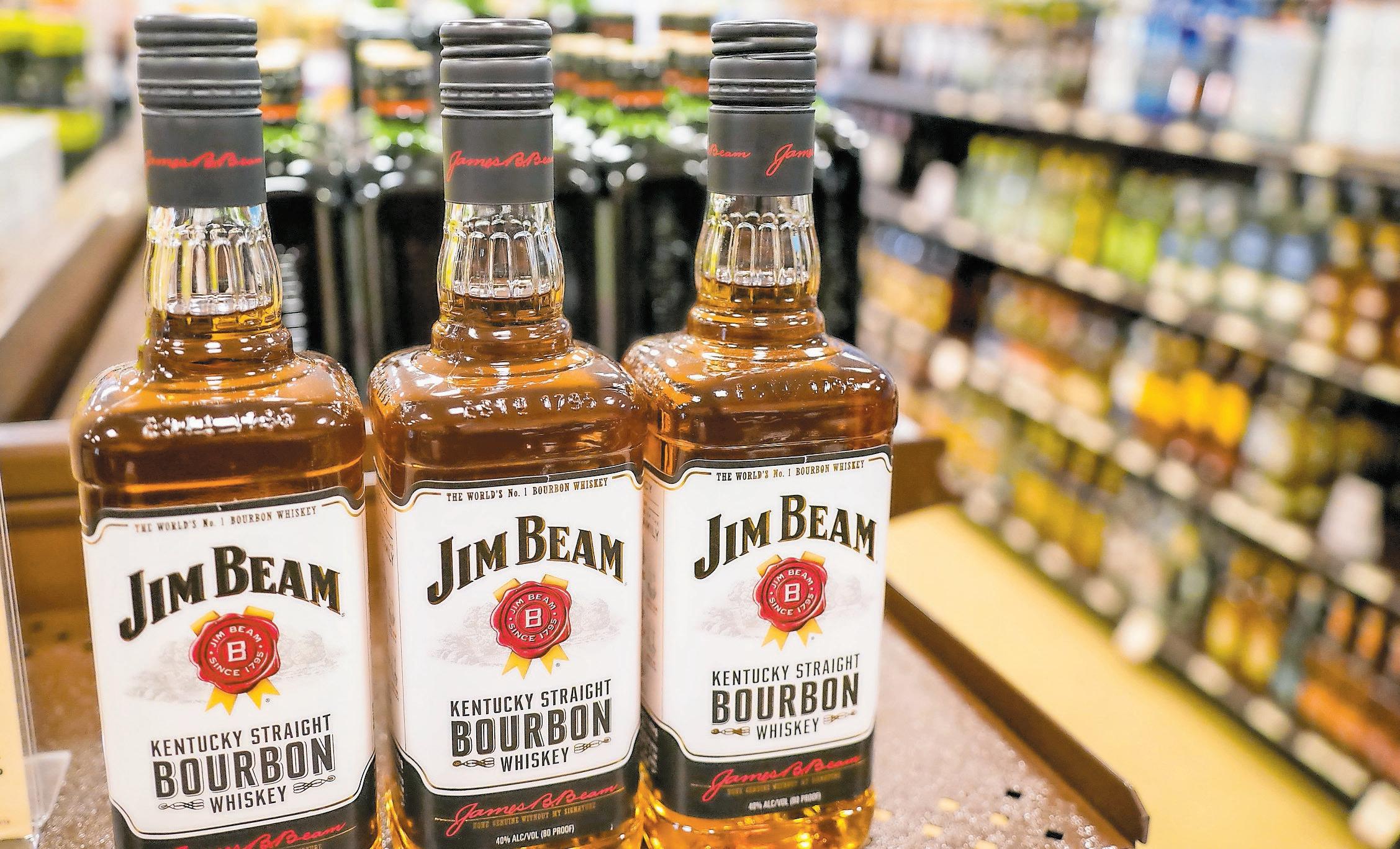
In fact,
Combined U.S. sales for bourbon, Tennessee whiskey and rye whiskey rose 6.7%, or $288 million, to $4.6 billion in 2021. Domestic volumes rose 4.5% to 29.7 million cases. >AP Photo/ Keith Srakocic Cheers: Whiskey sales start comeback in bars, restaurants
Restocked supplies reflect a comeback for an important segment of the business
Bruce Schreiner, The Associated Press
Bill Thomas sold off thousands of bottles from his whiskey inventory in 2020 to keep his acclaimed Washington, D.C., whiskey bar afloat when the coronavirus shuttered much of the economy. By the next year, the whiskey curator known for serving super-premium and hardto-get brands was replenishing inventories, even as
COVID-19 forced him to come to terms with a world of uncertainty. “There’s more bottles in here today than there were when we sold out when the pandemic hit,”
Thomas, owner of Jack Rose Dining Saloon, said by phone this week. “We’ve rebuilt everything.” Thomas’ restocked supplies reflect the start of a comeback for an important segment of the spirits industry’s business — on-premise sales from U.S. restaurants and bars.
The Recovery
Those on-premise sales volumes — representing about one-fifth of the U.S. spirits market — rose 53% in 2021, following pandemic-related restaurant and bar closures and restrictions nationwide in 2020, the Distilled Spirits Council of the United States said Thursday. The recovery isn’t complete. Last year’s on-premise sales were still down 14% from prepandemic levels in 2019, the council said. Despite ongoing challenges from the pandemic, American whiskey producers toasted another year of growth. Combined U.S. sales for bourbon, Tennessee whiskey and rye whiskey rose 6.7%, or $288 million, to $4.6 billion in 2021, the council said. Domestic volumes rose 4.5% to 29.7 million cases. Demand for super-premium brands, which fetch the highest prices, continued to surge last year, the council said. Super-premium volumes rose 15.6% in the bourbon, Tennessee whiskey and rye segment last year, the trade association said.
Industry-wide, overall sales and volumes grew for U.S. distilled spirits suppliers, and the spirits industry again increased its share of the total beverage alcohol market, the council said. “Consumers savoring spirits at home and trading up to higher-end brands, combined with the gradual reopening of bars and restaurants, resulted in record sales for the spirits sector,” said Chris Swonger, the council’s president and CEO. Overall supplier sales in the U.S. were up 12% in 2021 to reach $35.8 billion, while volumes rose 9.3% to 291.1 million 9-liter cases, the council said in its annual report. Tequila was a key growth driver, accounting for nearly one-third of the total increase in spirits revenue, it said. Irish whiskey had a strong 2021, posting nearly 18% volume growth. In 2020, as the spirits sector suffered from pandemic-related clampdowns on bars and restaurants, sales at liquor store and other retail outlets surged. Those off-premise sales reflected enduring demand for a good stiff drink, as consumers increasingly mixed their own drinks at home. Last year, off-premise sales volumes were flat, but still good enough to be up 19% from 2019, the council said. While waiting for his bar business to fully recover,
Thomas has started capitalizing on the pandemicera trend among consumers to increasingly mix their own drinks at home. He converted part of Jack
Rose into a bottle shop that includes coveted singlebarrel selections for take-home options. And a pandemic-inspired twist for thirsty customers, in which restaurants serve cocktailsto-go, continues to take hold. Cocktails-to-go are now permanent in 16 states, while 14 more states extended their measures, the council said. Retailer home-delivery laws passed in eight states. For his business, Thomas summed up 2021 as “the worst rollercoaster, finishing with a wreck at the end” as the Omicron variant spread late in the year. This year remains a “complete uncertainty” as the threat from COVID-19 persists, he said, but he’s bullish about the long-term outlook as more spirits consumers gravitate toward whiskey. “We know it’s going to come back,” he said. “We are optimistic. Whiskey is bulletproof, literally. The whiskey market is going nowhere but up.”
– Chris Swonger President and CEO, Distilled Spirits Council of the United States
Nonprofit uses Super Bowl parties asway to help the homeless
Teresa M. Walker The Associated Press
What started with a simple invitation to a few homeless people to watch the Super Bowl together in New York City has turned into quite a party.
And it just keeps growing. Super Soul Party, a nonprofit started by filmmaker and social media influencer Meir Kay, will have Super Bowl parties in 35 cities when the Cincinnati Bengals and Los Angeles Rams meet Feb. 13. Parties will be held in sites from Washington to Los Angeles and from Bozeman, Montana, to New Orleans. All inspired by a conversation Kay had with a homeless man just wanting someone to talk to him. “It just sort of connected like, ‘Oh my God, this is like an unofficial holiday in the U.S.,’” Kay said of the Super Bowl. “People who don’t have family or friends may feel even more lonely. So, how can I help with that?” Kay threw his first party in 2017, inviting homeless people in the neighborhood. A year later, people asked Kay how they could help, so parties were held in both New York and Los Angeles. Interest grew so quickly Kay founded the nonprofit to better organize to meet demand and seek corporate sponsors.
“I never thought myself as a founder of a nonprofit,” Kay said. “I just thought, ‘I’m a guy who likes to do good through video, a filmmaker.’ But it was really through people saying, ‘Hey, how are we going to get involved?’ I just sort of stepped up.”
More Than A Party
Super Soul Party has five sponsors helping cover the costs for this year’s parties that are much more than just food and football. Guests can get haircuts from barbers, clothing and dignity bags of personal hygiene items. Mental health counselors and people who can help with housing and jobs have been added as well. Kay said the food and watching the game are important. “Then we’re able to tackle on a deeper essence of the person, to build them back up,” Kay said. “And so the bigger picture from day one was to really bring back a connection to people who do not have it, so they could go on and to rebuild their own lives.” Super Soul Party works with existing nonprofits. Expanding beyond New York has been accomplished through volunteer coordinators connecting with homeless shelters and other groups in their own towns. Erika Harsanyi in Orlando, Florida, saw one of Kay’s videos from an early party and wanted to host one in her city. She too often felt helpless as a trauma nurse seeing homeless people needing more help than what an emergency room could provide. Now Orlando is about to host its first party with approximately 500 people expected at Exploria Stadium, a space big enough to feel safe in these COVID-impacted times. Harsanyi said the Super Bowl offers homeless people an experience most people take for granted. “We don’t think how lucky we are whereas that’s something that ... maybe they may not have ever been able to experience,” Harsanyi said. “And to be able to provide that with resources, it’s a really great opportunity. I’m hoping we can agree to
Women look through donated clothes during the 2019 Super Bowl party by nonprofit Super Soul Party for homeless people. >Benji Weintraub/Super Soul Party via AP And so, the bigger picture from day one was to really bring back a connection to people who do not have it, so they could go on
In fact, and to rebuild their own lives. Meir Kay Social media influencer and founder Super Soul of Super Soul Party Party has five sponsors helping cover the costs for this year’s parties that are much more than just food and football. make this a regular yearly thing.” Carlton Bussey, 57, has attended several of the parties in New York. A case manager for people with mental disabilities, Bussey now works in a men’s shelter after dealing with his own substance abuse issues that left him homeless for a time. He says the parties offer a sense of normalcy. “You feel like you belong to something good,” Bussey said. “People don’t pay a lot of attention to people who are homeless, you know?” Kay has big dreams to keep growing the nonprofit’s reach with more events held throughout the year. But he also sees tying them in with big sporting events such as soccer’s upcoming World Cup. “I find people are thirsty to connect even more so through the pandemic, and people want to give what they can,” Kay said.
